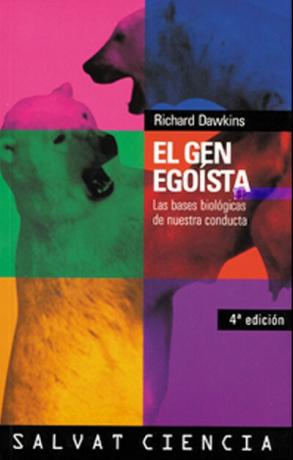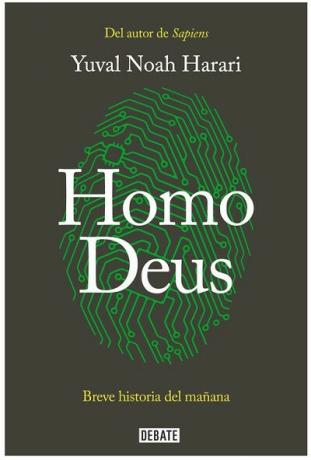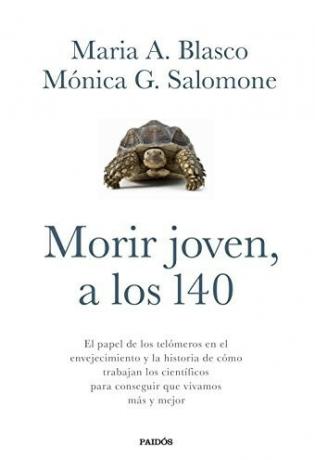The 20 best books on Science (recommended)
Isaac Asimov, Stephen Hawking, Albert Einstein, Richard Dawkins... and many more are the names of great scientists who have written books with which they have brought the world of science closer to the public general.
But not only great scientists are those who have made an important scientific disclosure. Others, both journalists and biographers, have taken it upon themselves to publicize great discoveries made by men and women who, unfortunately, their social context did not allow them to highlight.
Next We are going to know 20 recommended science books, with themes of all kinds and, many of them, suitable for all types of readers, both specialized and curious.
- Related article: "The 4 main types of science (and their research fields)"
science books you have to read
Next we are going to talk about 20 highly recommended science books, both to have a first idea about fields as complex as physics or genetics, as well as to know the names of scientists (and, especially, women scientists) who have been largely ignored throughout history history.
1. The Feynman Lectures on Physics (Richard Feynman)
The Feynman Lectures on Physics is a set of books on physics based on the lectures by Richard P. Feynman, Nobel laureate in physics, who was known as "The Great Explainer" (The great explainer), given to university students between the years 1961 and 1963, at the California Institute of Technology (Caltech). This work is one of the most important in the field, and is co-authored with Matthew Sands and Robert B. Leighton.
The work comprises three volumes. In the first, Feynman's lectures are exposed in which he addressed topics about radiation, mechanics and heat, including relativistic effects. In the second volume he talks mostly about electromagnetism and matter. Finally, in the third we talk about quantum mechanics.
- You can read more information about this book here.
2. Cosmos (Carl Sagan)
Cosmos is one of Carl Sagan's most famous books, and is based on his well-known series "Cosmos: A Personal Journey", which he himself produced with his wife Ann Druyan. Because his television series was so successful, Sagan focused on writing this book., with the intention of being able to analyze in greater depth the topics covered on the small screen.
The book contemplates human existence from a scientific and materialistic point of view, making us understand our place and meaning in the cosmos, something very difficult to define.
- you can buy it here.
3. The Selfish Gene (Richard Dawkins)

The Selfish Gene: The Biological Basis of Our Behavior is Richard Dawkins's reference book, and although already a classic, it remains a very popular book.
In it, Dawkins exposes his idea of the selfish gene as a vehicle to explain what is the subject of natural evolution. In the book the idea that the gene is the fundamental evolutionary unit is defended, also criticizing evolutionary arguments for group selection.
- You can read more about him here.
- You may be interested in: "The 10 branches of Biology: its objectives and characteristics"
4. Think fast, think slow (Daniel Kahneman)
think fast, think slow by Daniel Kahneman, Nobel Prize in Economics, is one of the best-known books of the 21st century in the field of behavioral sciences. This book brings together decades of research by the author in collaboration with psychologist Amos Tversky.
He exposes the three phases of his career, having a first, in which delved into cognitive biases, then his development of perspective theory and, finally, his latest studies on the idea of happiness.
The title of the book is not causal. It is organized around two existing dichotomies, two ways of thinking: system 1, fast and instinctive, and system 2, slower and more logical. Throughout the book he also exposes other dichotomous systems of behavior.
- If you are interested you can read more about him here.
5. The Immortal Life of Henrietta Lacks (Rebecca Skloot)
The Immortal Life of Henrietta Lacks (The Immortal Life of Henrietta Lacks) was written by Rebecca Skloot and deals with the life of Henrietta Lacks, an African-American woman who was vitally important in cancer research, because he suffered from cervical cancer and died from it in 1951.
Before she passed away, she underwent a biopsy and, without her consent due to being black in a pro-segregation society, she became a cancer cell donor for research. With these cells, a cell line culture was made that, to this day, is still active, being used for countless oncological experiments and which are called HeLa cells.
- In this page you will find more information.
6. The man who mistook his wife for a hat (Oliver Sacks)
The man who mistook his wife for a hat was published in 1985 and written by the neurologist Oliver Sacks, this work being a benchmark in the anamnestic genre. In it Several clinical cases of patients with whom he had the opportunity to work throughout his career are described..
The title is based on the case of a particular patient, which Sacks calls “Dr. P”, who suffered visual agnosia. This neurological disorder prevents people from recognizing faces and objects, hence the anecdote that he mistook his wife for a hat.
- To see more information about this book, click this page.
7. The Origin of Species (Charles Darwin)
The Origin of Species is probably one of the best-known books in history, only being able to compete with the Bible in translations and number of sales. It is the most famous book of the English naturalist Charles Darwin, and is considered the foundational book of all that is the field of evolutionary biology, being one of the most important scientific pieces ever written.
This book caused a sensation when it was published; It generated a lot of controversy for its way of dealing with the authentic origin of the human being, in opposition to the religious idea of the intelligent design of man and other species. However, today his main ideas are considered a fundamental part of Biology as a science.
In short, in the book he states that the individuals that are more adapted to the environment have a better chance of surviving than those that are less so, having more possibilities to reproduce and make their characteristics the ones that prevail in the next generation, thus influencing the evolutionary process of the species itself.
- In this page you can buy it.
8. The future of our mind (Michio Kaku)
Michio Kaku, American theoretical physicist, professor at New York University and expert in string theory, presents in The future of our minda narrative that would be between the border of the latest neuroscientific advances and science fiction.
Kaku exposes how in the future there will be advances such as being able to record memories, practice telepathy, record our dreams, and even control other people's minds. A future that, for better or worse, could arrive within a relatively few years. The idea is even defended that in the not too distant future we will be able to transfer our knowledge to computers, like someone uploading a file to the cloud.
- If you are interested and want to read more about the book, you can access this page.
- You may be interested in: "The 36 best psychology books that you cannot miss"
9. A Brief History of Time (Stephen Hawking)
The late Stephen Hawking published in 2005 one of the best-known books in popular science, becoming a bestseller practically as soon as it was exposed in bookstores.
In it, cosmology topics are exposed, such as the Big Bang and black holes, but in a simple way, suitable for a non-specialist audience. In fact, the publication of this book was made based on the fact that an earlier book by Hawking, A Brief History of Time: From the Big Bang to Black Holes (1988) was difficult for many of his scholars to understand. readers.
- you can buy it here.
10. The bonobo and the ten commandments (Frans de Waal)

Frans de Waal, a Dutch biologist, exhibits at The bonobo and the ten commandments a way of seeing these primates that does not leave you indifferent.
This researcher has spent decades studying the behavior of bonobos and chimpanzees, observing attitudes that we would associate with our species, such as empathy, cooperation and even mourning after the death of another individual.
- To read more about the book or order it, you can access this page.
11. We are our brain: how we think, suffer and love (Dick Swaab)
Dick Swaab, a Dutch neurologist, published a book in 2011 that became a bestseller, probably due to some of the controversial clarifications he shared in it.
In We are our brain: how we think, suffer and love, Swaab recounts, in an entertaining and quite rigorous way, about the changes in the brain related to sexuality, puberty, psychological disorders and faith.
In fact, in this book he affirms that sexual orientation is determined by hormones. secreted by the mother during embryonic development, something that perhaps earned him the popularity to the book.
12. The Countdown (Alan Weisman)
In The Countdown, Alan Weisman tries to make us aware of how limited the Earth's resources are and their rate of consumption.
Every four and a half days a million more people are born on the planet, people who will eat in addition to consuming products such as televisions, cars and clothes. If the entire planet had the same consumption pattern as developed countries, humanity would need the resources of three planets to be able to reach the end of the year.
Alan Weisman resorts to a countdown, a race against time in which countries should already find solutions to avoid the collapse of humanity. Weisman uses in this book the expert voice of people of various cultures, religions and nationalities, trying to to raise awareness that saving the planet is not an issue that should be taken separately by the governments.
13. A Brief History of Chemistry: An Introduction to the Ideas and Concepts of Chemistry, (Isaac Asimov)
Isaac Asimov was a Russian scientist, not only known for being one of the great minds of the 20th century, but also for being a prolific writer of science fiction works, being considered one of the referents of the genre.
In Brief history of chemistry: Introduction to the ideas and concepts of chemistry introduces concepts and ideas of chemistry present throughout the history of humanity, going from antiquity to atomic theory.
14. What is life? (Erwin Schrödinger)
Life is a truly spectacular phenomenon, and even more so if we take into account that it is something that, probabilistically speaking, is remotely possible. In What is life? who was a Nobel Prize, Erwin Schrödinger raises, in a somewhat philosophical way but without leaving science aside, this question, addressing concepts of thermodynamics, trying to understand biological complexity, and talking about the debate of determinism and chance.
15. Homo Deus (Yuval Noah Harari)

In Homo Deus, Yuval Noah Harari poses several questions about the increasingly sophisticated technological world and how it influences our decision making. In addition, it also raises questions about evolution, such as what will happen once brains have been designed modified in such a way that they are perfect, will natural selection give way to intelligent design made in laboratory?
In the work he presents both dreams and nightmares that could materialize throughout our century, such as the overcome death until the creation of artificial intelligence, intelligence which could become our against.
16. On the theory of special and general relativity (Albert Einstein)
What was originally going to be a short scientific article ended up becoming one of the best-known books of the 21st century, and written by none other than Albert Einstein himself. In On the theory of special and general relativity, Einstein tries to give an idea as exact as possible about his theory of relativity, approaching it from both a scientific and a philosophical point of view.
It is divided into three parts. The first talks about special relativity, the second about general relativity and, finally, the third talks about considerations about the universe treated as a whole.
17. Wise (Adela Muñoz Páez)
There are many women who have contributed to great scientific advances but have been ignored. In did you know, by Adela Munoz Perez, the story of some of the many women who have made great contributions to science is rescued, in addition to explaining why they were so ignored and unknown, despite the fact that some of her inventions and discoveries have meant a before and after.
In addition, a reflection is made on the role of women in science and how they have been prevented from being able to study it, using the case of women as examples. universities in the last century, which prohibited the access of female students, or how women could not go to the libraries of monasteries during the Middle Ages.
18. The Women of the Moon (Daniel Roberto Altschuler and Fernando J. crossbowmen)
The astronomers and scientific communicators Daniel Roberto Altschuler and Fernando J. Ballesteros expose in women of the moon existing inequality with the recognition of women.
Of the 1,594 geographical features of our satellite that have been named, only 31 have the names of women, being mostly European and North American. These data show the inequality that, to this day, continues to exist not only in the recognition of women in the great scientific discoveries, but also varies greatly from region to region.
19. Dying young, at 140 (Mónica G. Salomone, Maria Blasco Marhuenda)

Aging is an inevitable process. Or not? In Dying young, at 140, Maria A. Blasco, molecular biologist, and Mónica G. Salomone, a journalist, explore the change in the scientific paradigm that, until recently, aging was seen as an inevitable process,
However, the book highlights the fact that Through scientific advances, great things have been achieved, such as increasing survival and life expectancy in patients with Alzheimer's or cancer. What we see today as something totally impossible tomorrow does not have to be, prolonging our life several decades more something that, one day, will cease to be a dream.
20. The girls are science (Irene Cívico and Sergio Parra Castillo)
Let's make a mental effort: let's try to say ten names of women scientists? Hard, right? The funny thing is that we do know of great scientific discoveries made by women, such as radium or DNA research, carried out by Marie Curie or Rosalind Franklin, respectively.
There are many things in our day to day that were female inventions or discoveries, despite the fact that their authors have gone largely unnoticed. The girls are from science, as the title of the book says well and, as with Sabias, Irene Cívico and Sergio Parra Castillo introduce us to the life and findings of great women, women who, if they had not been interested in science, would not have managed to make our lives much better.
Bibliographic references:
- Einstein, Albert, Ph.D. Professor of Physics at the University of Berlin (1920). Relativity: The Special and the General Theory: Popular Exposition; Authorized translation by Robert W. Lawson, D.Sc., University of Sheffield (3 ed.). London: Methuen & Co. Ltd. Retrieved July 4, 2016 – via Internet Archive.
- Dawkins, R. (1976). The Selfish Gene. Oxford: Oxford University Press.
- Darwin, C., Duthie, J. F., & Hopkins, W. (1859). On the origin of species by means of natural selection: Or, The preservation of favored races in the struggle for life. London: John Murray, Albemarle Street.
